-
 bitcoin
bitcoin $87959.907984 USD
1.34% -
 ethereum
ethereum $2920.497338 USD
3.04% -
 tether
tether $0.999775 USD
0.00% -
 xrp
xrp $2.237324 USD
8.12% -
 bnb
bnb $860.243768 USD
0.90% -
 solana
solana $138.089498 USD
5.43% -
 usd-coin
usd-coin $0.999807 USD
0.01% -
 tron
tron $0.272801 USD
-1.53% -
 dogecoin
dogecoin $0.150904 USD
2.96% -
 cardano
cardano $0.421635 USD
1.97% -
 hyperliquid
hyperliquid $32.152445 USD
2.23% -
 bitcoin-cash
bitcoin-cash $533.301069 USD
-1.94% -
 chainlink
chainlink $12.953417 USD
2.68% -
 unus-sed-leo
unus-sed-leo $9.535951 USD
0.73% -
 zcash
zcash $521.483386 USD
-2.87%
How much can Bitcoin mining be mined in a day?
The profitability of Bitcoin mining is influenced by factors such as block difficulty, hash rate, energy consumption, and electricity costs, affecting daily mining returns.
Jan 10, 2025 at 02:24 pm
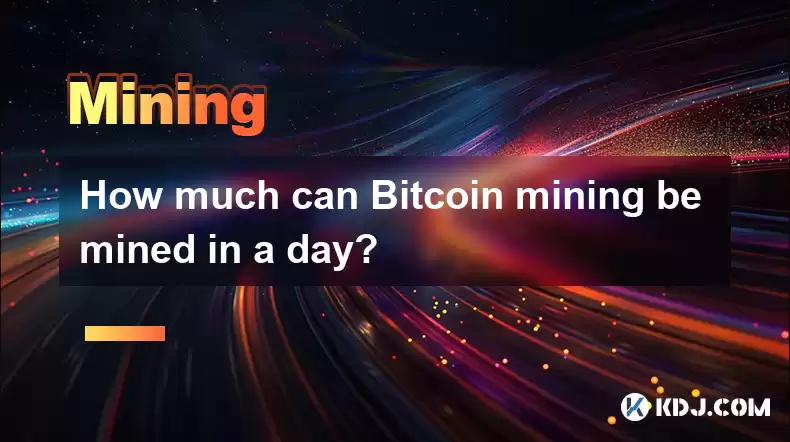
- Bitcoin mining difficulty and block reward impact daily mining returns.
- Hash rate, energy consumption, and electricity costs affect mining profitability.
- Cloud mining offers an alternative to individual hardware mining.
- Mining pools combine resources for increased mining efficiency.
- Solo mining requires immense computational power and luck.
The amount of Bitcoin that can be mined per day is influenced by multiple factors, including:
1. Block Difficulty and Reward- Bitcoin's mining difficulty adjusts every 14 days to maintain a consistent block production rate of approximately 10 minutes.
- The higher the difficulty, the more computational power is required to solve the cryptographic puzzle that generates new blocks and awards the miner with Bitcoin.
- The current block reward is 6.25 BTC, which is halved approximately every four years.
- Hash rate measures the computational power used by the Bitcoin network.
- A higher hash rate increases the probability of solving the cryptographic puzzle and earning the block reward.
- Miners compete for the reward, resulting in a dynamic hash rate that fluctuates with the market price of Bitcoin.
- Bitcoin mining requires specialized hardware (ASICs) that consume significant amounts of electricity.
- The cost of electricity directly impacts mining profitability, especially in regions with high energy prices.
- Cloud mining allows individuals to purchase hash power from remote data centers.
- Users pay for a contract that specifies the amount of hash power they wish to rent.
- Advantages: lower upfront hardware costs, reduced maintenance responsibilities.
- Disadvantages: potential for scams, reliance on third-party providers.
- Mining pools combine the hash power of multiple miners to increase their chances of earning block rewards.
- Pools charge a small fee for membership, which is deducted from the rewards earned by the participants.
- Advantages: increased probability of block rewards, reduced operating costs.
- Disadvantages: smaller individual rewards, vulnerability to pool centralization.
- Independent miners attempt to mine blocks on their own without joining a pool.
- Requires significant computational resources and luck to be profitable.
- Advantages: no fees, potential for higher rewards.
- Disadvantages: requires dedicated hardware, high energy consumption, low probability of success.
- The time required to mine 1 Bitcoin varies depending on the hash rate and mining difficulty.
- Currently, with a hash rate of ~250 EH/s, it takes approximately 10 minutes to mine a block, which yields 6.25 BTC.
- Thus, it would take approximately 1.3 years to mine 1 Bitcoin solo.
- Profitability depends on factors such as energy costs, hardware efficiency, and Bitcoin price.
- Use a mining calculator to estimate potential profits based on specific conditions.
- Joining a mining pool or cloud mining are more cost-effective options than solo mining.
- Cloud mining requires lower hardware investment but involves rental fees.
- Mining pools share rewards and reduce individual expenses.
Disclaimer:info@kdj.com
The information provided is not trading advice. kdj.com does not assume any responsibility for any investments made based on the information provided in this article. Cryptocurrencies are highly volatile and it is highly recommended that you invest with caution after thorough research!
If you believe that the content used on this website infringes your copyright, please contact us immediately (info@kdj.com) and we will delete it promptly.
- Shiba Inu Developer Defends Leadership Amidst Price Criticism, Eyes Future Developments
- 2026-02-01 03:50:02
- Dogecoin's Volatile Dance: Navigating Hidden Opportunities Amidst Nuclear Risk
- 2026-02-01 04:25:01
- MEXC's Gold Launchpad Ignites Zero-Fee Investments in Tokenized Gold Amidst Gold's Record Rally
- 2026-02-01 04:40:02
- DOGEBALL Unleashes L2 Gaming Revolution with Explosive Crypto Presale
- 2026-02-01 04:35:01
- GPT-5's Foresight, Solana's Frontier, and Ethereum's Enduring Gauntlet: Navigating the New Crypto Epoch
- 2026-02-01 04:35:01
- Crypto Coaster: Bitcoin Navigates Intense Liquidation Hunt as Markets Reel
- 2026-02-01 00:40:02
Related knowledge
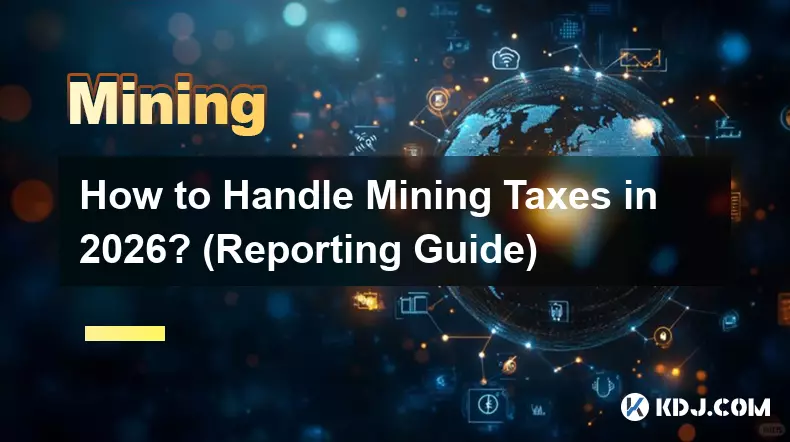
How to Handle Mining Taxes in 2026? (Reporting Guide)
Feb 01,2026 at 01:39am
Tax Classification of Mining Rewards1. Cryptocurrency mining rewards are treated as ordinary income at the fair market value on the date of receipt. 2...
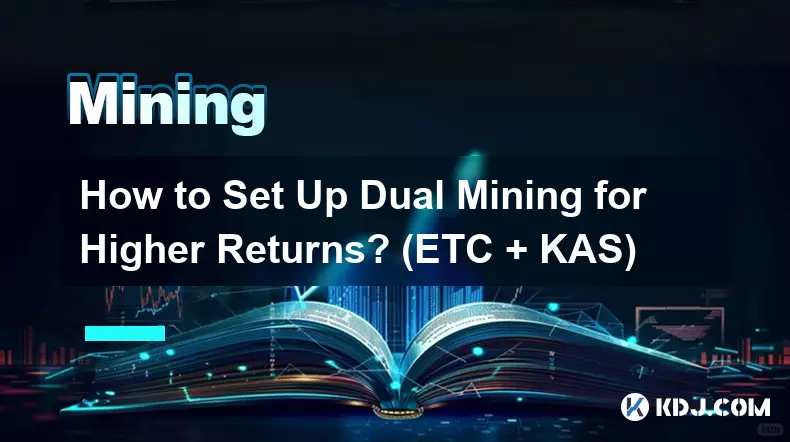
How to Set Up Dual Mining for Higher Returns? (ETC + KAS)
Feb 01,2026 at 02:19am
Dual Mining Fundamentals1. Dual mining allows a single GPU to simultaneously contribute computational power to two different blockchains using compati...
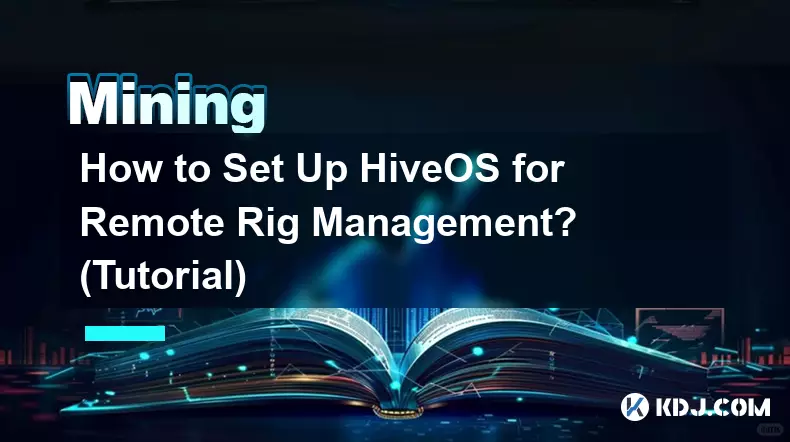
How to Set Up HiveOS for Remote Rig Management? (Tutorial)
Feb 01,2026 at 12:39am
Understanding HiveOS Fundamentals1. HiveOS is a Linux-based operating system specifically engineered for GPU mining rigs, offering lightweight perform...
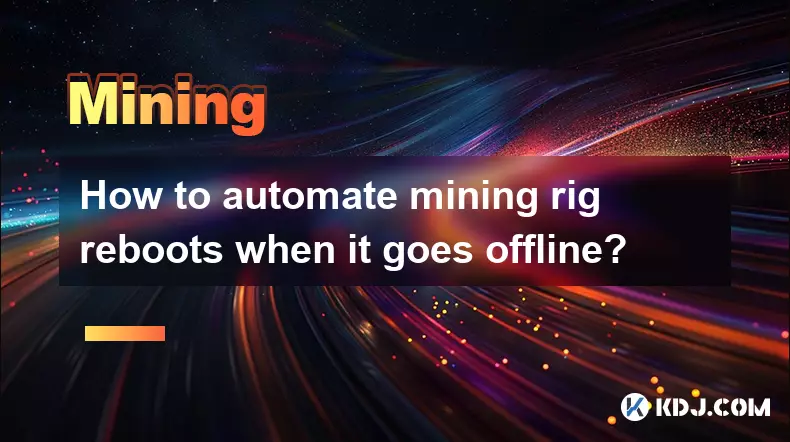
How to automate mining rig reboots when it goes offline?
Jan 23,2026 at 11:00pm
Monitoring System Integration1. Deploy a lightweight agent on the mining rig’s host OS that continuously reports hash rate, GPU temperature, and pool ...
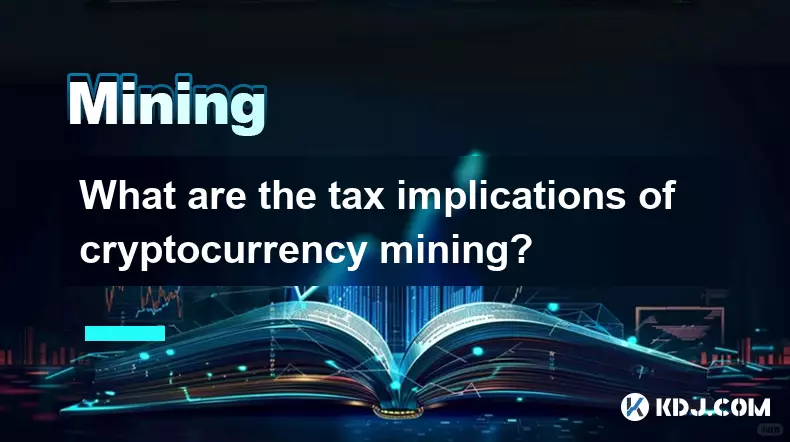
What are the tax implications of cryptocurrency mining?
Jan 23,2026 at 02:40am
Tax Treatment of Mining Rewards1. Cryptocurrency received as a reward for mining is treated as ordinary income by the IRS at the fair market value on ...
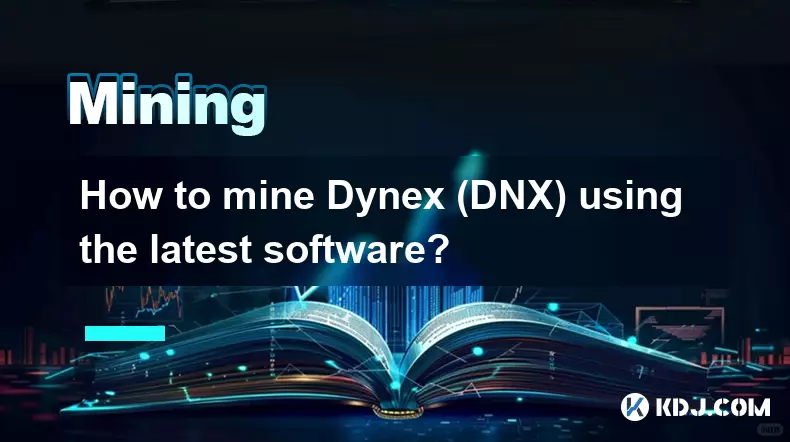
How to mine Dynex (DNX) using the latest software?
Jan 22,2026 at 10:00am
Understanding Dynex Mining Fundamentals1. Dynex (DNX) operates on a proof-of-work consensus mechanism optimized for neuromorphic computing workloads, ...

How to Handle Mining Taxes in 2026? (Reporting Guide)
Feb 01,2026 at 01:39am
Tax Classification of Mining Rewards1. Cryptocurrency mining rewards are treated as ordinary income at the fair market value on the date of receipt. 2...

How to Set Up Dual Mining for Higher Returns? (ETC + KAS)
Feb 01,2026 at 02:19am
Dual Mining Fundamentals1. Dual mining allows a single GPU to simultaneously contribute computational power to two different blockchains using compati...

How to Set Up HiveOS for Remote Rig Management? (Tutorial)
Feb 01,2026 at 12:39am
Understanding HiveOS Fundamentals1. HiveOS is a Linux-based operating system specifically engineered for GPU mining rigs, offering lightweight perform...

How to automate mining rig reboots when it goes offline?
Jan 23,2026 at 11:00pm
Monitoring System Integration1. Deploy a lightweight agent on the mining rig’s host OS that continuously reports hash rate, GPU temperature, and pool ...

What are the tax implications of cryptocurrency mining?
Jan 23,2026 at 02:40am
Tax Treatment of Mining Rewards1. Cryptocurrency received as a reward for mining is treated as ordinary income by the IRS at the fair market value on ...

How to mine Dynex (DNX) using the latest software?
Jan 22,2026 at 10:00am
Understanding Dynex Mining Fundamentals1. Dynex (DNX) operates on a proof-of-work consensus mechanism optimized for neuromorphic computing workloads, ...
See all articles





















![THIS IS THE HARDEST COIN TO GET [POLY DASH] THIS IS THE HARDEST COIN TO GET [POLY DASH]](/uploads/2026/01/31/cryptocurrencies-news/videos/origin_697e0319ee56d_image_500_375.webp)




















































